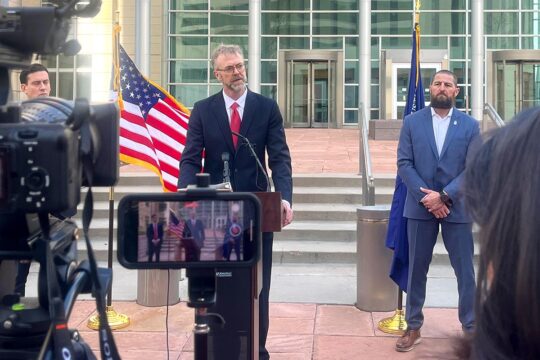Defeated Gambian President Yahya Jammeh has again vowed not to leave office at the end of his mandate in January, saying a court first must rule on his challenge to the outcome of a hotly disputed election.
Jammeh, who has been in power for 22 years, has rejected opposition candidate Adama Barrow's shock victory in the December 1 vote.
His stance has stoked international concerns about the future of the small west African country, with the UN joining African leaders in calling for him to step down.
"Unless the court decides the case, there will be no inauguration (of Barrow) on the 19 January," said Jammeh, who had initially conceded defeat but then lodged a complaint with the country's Supreme Court to overturn the result.
"I will not cheat but I will not be cheated," he said in a lengthy television address late Tuesday.
"What we are asking for is not for the IEC (Independent Election Commission) to declare me the winner, I cannot do that," he said.
"Justice must be done and the only way justice can be done is to reorganise the election so that every Gambian votes. That's the only way we can resolve the matter peacefully and fairly."
- 'Will not be blackmailed' -
Jammeh, 51, also took aim at the West African regional ECOWAS bloc which has called on him to accept the results and refrain from any action that could compromise the peaceful transfer of power.
"My rights cannot be violated and intimidated to a point where I succumb to blackmail," he said.
West African leaders meeting at the weekend said they would attend Barrow's inauguration and "take all necessary actions to enforce the results", without spelling out what those measures might be.
Jammeh, who took power in a 1994 bloodless coup, initially warmly congratulated Barrow after results were declared.
But a week later he condemned "unacceptable errors" by election authorities and called for a new vote.
"I will not step down, because this is disrespectful of our constitution which says a transition period of 60 days. Even if he had won legally, I have 60 days of transition," he said Tuesday.
The nation's government-in-waiting said on Monday that Jammeh had no constitutional mandate to stay in office beyond January.
"Any president who loses constitutional legitimacy becomes a rebel," said Halifa Sallah, a spokesman for the opposition coalition that spurred Barrow to victory.
The impoverished country has been stable under Jammeh's rule although rights groups and media watchdogs accuse him of cultivating a climate of fear and crushing dissent against his regime.



